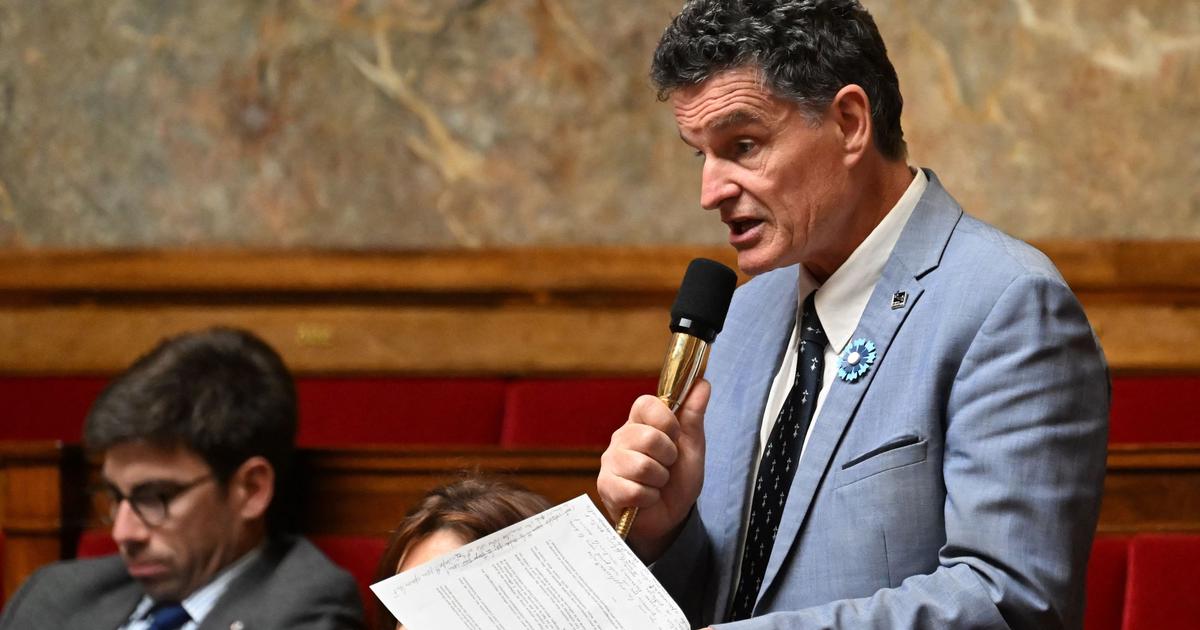Paul Molac is Liot deputy for Morbihan, co-president of the study group on regional languages and cultures in the Assembly, and rapporteur of
the 2021 law, relating to the heritage protection of regional languages
.
This interview is taken from the podcast
Le moment des mots
.
To discover
Crosswords, Sudoku, 7 Letters... Keep your mind alert with Le Figaro Games
LE FIGARO. - After being promulgated, your law was partly censored by the Constitutional Council. The sanctioned passages concerned “immersive teaching” in regional languages and the use of diacritics such as the tilde in civil status documents. Three years later, where are we? What has your text changed?
Paul MOLAC. -
Previously there was no real legislation on regional languages.
One of the fundamental articles of the 2021 law provides that the State and local authorities are responsible for the preservation of this intangible heritage.
Until then, policies in this area depended on the goodwill of communities.
That this is an injunction is completely new.
Likewise, according to article 7 of the law, National Education must now offer all students in France the learning of the regional language of the territory in which they live.
To do this, and because social demand, the state of languages, as well as their status, are not the same from one region to another, the State signs an agreement with local authorities.
In the Basque Country, for example, one in two Basques is able to speak the regional language, while it is much less in Occitania and Brittany.
These data are taken into account.
Concretely, what is planned so that a young person can follow education in a regional language?
The advice to follow is to start in kindergarten.
When parents enroll their child in a bilingual class, where 50% of the teaching time is in French and 50% in a regional language, it becomes both a language of communication and a language of learning.
At the end of primary school, it is possible to join so-called bilingual sections in middle school, in which a certain number of subjects are taught in French and a regional language.
As for these high school pathways, they are still under construction.
The largest cohorts are in nursery and primary school.
It is necessary that three or four schools feed a middle school, then two or three middle schools a high school.
But, the more we advance, the more the multiplication of different options makes the structure more complicated to put in place.
The Constitutional Council is very militant regarding regional languages.
Its members have a vision similar to that of the fathers of the Republic, for whom being French means respecting a certain linguistic, cultural, etc. standard.
Paul Molac, deputy (Liot) of Morbihan
Should we, as Nupes MP Frédéric Maillot proposed, include their learning in the common core of programs?
It's a good idea.
Especially since Frédéric Maillot is a deputy for Réunion, where people speak Creole without making a difference between French and their language.
Once at school, we explain to them that they do not speak French correctly.
However, it is not the case.
The advantage, for them, would be to identify the two languages and no longer mix them.
In his speech to inaugurate the Cité internationale de la langue française in Villers-Cotterêts, Emmanuel Macron affirmed that “everyone has the right to know, speak or transmit their language(s), and that this is a non-negotiable right” . For it to be applied, you are in favor of including regional languages in article 2 of the Constitution. For what ?
The Constitutional Council is very militant regarding regional languages.
Its members have a vision similar to that of the fathers of the Republic, for whom being French means respecting a certain linguistic, cultural, etc. standard.
But French today is very diverse.
And the regional languages, since they are in use in French territory, are French.
In 2021, the Council censored the article of law relating to immersive teaching, even though it is a method that exists in all countries in the world and France practices it in its high schools abroad.
Why would this be unconstitutional?
The same goes for certain diacritical marks, such as the tilde (which we find in the first name Fañch in particular, editor's note): we find it in the French language of the 18th century.
Again, this doesn't make sense.
It is time to show that the legislator does not see things that way.
Therefore, what other solution than to oblige by including regional languages in article 2 of the Constitution?
What should we say to those for whom the use of regional languages is contrary to the republican ideal, or even threatens national unity?
It is a vision of the mind as simplistic as that which suggests that it is enough to wave a tricolor flag to be French.
In our country, we absolutely want to bring culture and citizenship closer together.
However, citizenship is the exercise of one's political rights according to a set of rules defined through voting.
It has nothing to do with practicing a language.
France is such a diverse country that it is valuable to have a single language, which allows us to communicate more easily.
But for one language to crush all others is intolerable.
In our country, we absolutely want to bring culture and citizenship closer together.
However, citizenship is the exercise of one's political rights according to a set of rules defined through voting.
It has nothing to do with practicing a language
Paul Molac, deputy (Liot) of Morbihan
The policy pursued in France until now risks causing a significant cultural loss.
So something has to be done.
And it has nothing to do with national sentiment.
Let's take the example of the 14-18 war, during which few Bretons spoke French, or at least spoke it poorly.
This did not prevent them from being killed like all the other defenders of the homeland.

